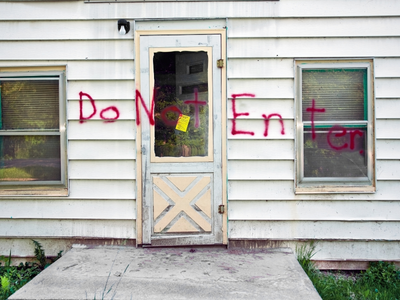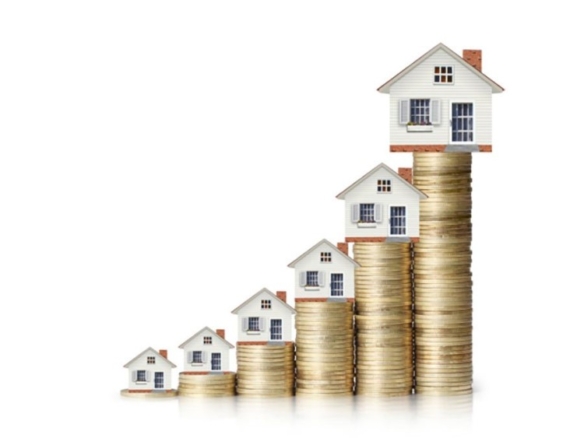Do you own a condemned house in Gainesville, Florida and don’t know what to do? This guide is for you. We’ll talk about the laws, local issues, and how this affects your money. We’ll also help you decide whether to sell or fix your house. So, let’s start this journey together and make a tough situation easier to handle.
Understanding Condemned Houses
A condemned house is a property that the government has deemed unsafe or unfit for living. This could be due to various reasons, such as severe structural damage, health hazards, or building code violations. The process of a house being condemned involves:
- – Inspection by local authorities.
- – Issuance of a notice.
- – An opportunity for the homeowner to rectify the issues.
If the problems aren’t addressed within a specified timeframe, the house is officially condemned, and it becomes illegal to inhabit it.
Florida Laws on Condemned Properties
In Florida, the laws surrounding condemned properties are quite detailed. According to the Florida Statutes, a property can be condemned if found dangerous to the health, safety, or welfare of the occupants or the public. The owner is typically given a chance to correct the issues. If they fail, the property is deemed unfit for occupancy. Homeowners must understand their rights and responsibilities under these laws to navigate the process effectively.
Condemned Houses in Gainesville: A Local Perspective
Gainesville, like many other cities, has its share of condemned properties. A recent report by the Gainesville Sun highlighted several cases of houses being condemned due to various issues ranging from structural damage to health hazards. The local authorities proactively identify such properties and take necessary action to ensure public safety.
Mortgage Implications for Condemned Houses
Navigating the complexities of mortgage implications for condemned houses can be daunting. This is a scenario where a homeowner’s worst nightmare comes true – their property is deemed unfit for habitation. The repercussions of this situation are emotional and financial, especially when a mortgage is involved.
Breach of Mortgage Agreement
Most mortgage agreements stipulate that the property must be maintained in a habitable condition. When a house is condemned, it is officially declared unfit for habitation due to structural instability, severe health risks, or other safety issues. This declaration clearly violates the mortgage agreement, putting the homeowner in a precarious position.
Opportunity to Rectify and Risk of Foreclosure
Lenders typically take their time with drastic measures like foreclosure. Instead, they usually allow homeowners to rectify the issues leading to condemnation. If the homeowner fails to address the issues within the given timeframe, the lender may choose to foreclose on the property.
Dealing with a condemned house when a mortgage is involved can be complex. Homeowners must understand their mortgage agreement and the implications of having their property condemned. While lenders typically provide an opportunity to rectify the situation, failure can lead to foreclosure. Therefore, it’s in the best interest of homeowners to address any issues promptly to maintain their property’s livability and value.
Can a Condemned House be Fixed?
Yes, a condemned house can be fixed. The process involves addressing all the issues identified by the local authorities, which can be costly and time-consuming. Once the repairs are completed, the authorities will re-inspect the property.
If it meets the required standards, the condemnation notice is lifted. However, homeowners should weigh the costs of repairs against the potential increase in property value to determine if it’s a viable option.
The Consequences of Living in a Condemned House
Living in a condemned house comes with a host of risks. Apart from the legal implications, there are serious health and safety concerns. According to a report by HomeGo, living in a condemned house can lead to exposure to harmful substances, structural hazards, and unsanitary conditions. In extreme cases, it can even lead to eviction by local authorities.
What Happens to Tenants When a Property is Condemned?
When a rental property is condemned, tenants must vacate the premises. Tenants have certain rights and protections under Florida law. For instance, they may be entitled to refund their security deposit and any prepaid rent. In some cases, they may also be able to terminate their lease without penalty.
Selling Your Condemned House in Gainesville
Selling a condemned house can be challenging, but it’s not impossible. The key is to understand the market and your options. You can sell the property as-is, undertake the repairs yourself, or sell to a cash buyer like Liberty House Buying Group in Gainesville, FL. Each option has pros and cons; the best choice depends on your circumstances.
The Benefits of Selling to Cash Buyers
When faced with selling a condemned house, one option that stands out is selling to cash buyers. This approach has several benefits that can make the process smoother and more manageable for homeowners. Let’s delve into these advantages:
- – Quick Process: One of the most significant benefits of selling to cash buyers is the speed of the transaction. Traditional real estate sales can take weeks or even months. In contrast, cash buyers can often close the deal in as little as a few days. This quick turnaround can be a game-changer, especially for homeowners facing financial difficulties or needing to relocate quickly.
- – No Need for Repairs: Condemned houses often require extensive repairs to make them habitable and appealing to traditional buyers. This can be costly and time-consuming. However, cash buyers purchase properties in any condition, eliminating the need for homeowners to invest time and money into fixing the house.
- – Hassle-Free Paperwork: Selling a house involves a lot of paperwork, which can overwhelm many homeowners. Cash buyers typically handle all the paperwork, making the process less stressful for the seller.
- – Certainty of Sale: Traditional house sales can fall through for various reasons, such as financing issues. Cash buyers almost guarantee the sale once the offer is accepted, providing the homeowner with peace of mind.
Selling a condemned house to cash buyers offers a quick, hassle-free solution that eliminates the need for repairs and provides certainty of sale. This option can be particularly beneficial for homeowners who need to sell their property quickly and without the stress and uncertainty of a traditional sale.
How Long Does it Take to Sell a Condemned House?
The timeline for selling a condemned house can vary widely depending on the property’s condition, the local real estate market, and the selling strategy. However, selling to a cash buyer can significantly speed up the process. Cash buyers can often close the deal in a matter of days, compared to several weeks or months for a traditional sale.
Preparing Your Condemned House for Sale
Even if your house is condemned, you can take steps to prepare it for sale. This includes securing the property, addressing any safety hazards, and conducting a thorough inspection. It’s also important to be transparent with potential buyers about the property’s condition and the reasons for its condemnation.
Conclusion
Selling a condemned house in Gainesville, Florida, may seem daunting, but it’s entirely possible with the right information and resources. Whether you choose to repair the property, sell as-is, or sell to a cash buyer / real estate investor, understanding your options can help you make the best decision. Remember, every challenge presents an opportunity, and with the right approach, you can turn your condemned house into a stepping stone toward your next adventure.




